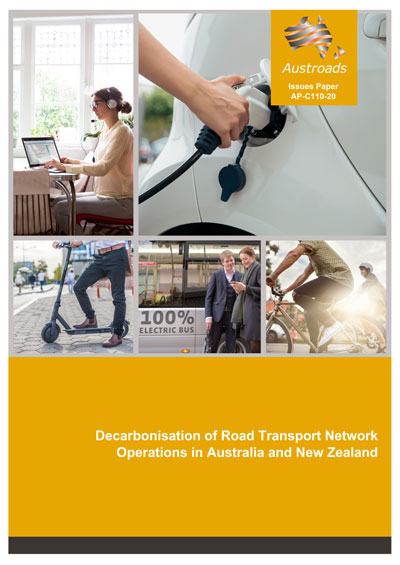Monday, 1 June 2020

Austroads has published an issues paper that analyses the contribution of the road transport sector to generating greenhouse gas emissions in Australia and New Zealand and highlights the role that road transport network operations need to play in supporting the state and national emissions reduction goals.
The paper found that, left unabated, the transportation sector will continue to drive emissions growth in Australia and New Zealand and that business as usual is inconsistent with the ambition for net zero emissions by 2050 across Australia and New Zealand jurisdictions.
“The roads sector has an important role to play in supporting the state and national goals in the transition to net zero emissions by 2050 as it accounts for approx. 14% of Australian GHG emissions,” said Richard Delplace, Austroads Program Manager Network.
The issues paper ‘Decarbonisation of Road Transport Network Operations in Australia and New Zealand’ explores the policy landscapes of both countries and reviews several decarbonisation pathways in the context of the Paris Agreement’s goal to reduce the risks and impacts of climate change by limiting the temperature increase to 1.5 °C.
The transition to electric vehicles across the road network is a critical initiative in reducing greenhouse gas emissions as highlighted in the recently released Technology Investment Roadmap Discussion Paper: A Framework to Accelerate Low Emissions Technologies from the Australian Commonwealth Government. “Policy makers and road transport network operators can have real impact on the road sector’s decarbonisation; crucially, policy interventions to support electric vehicle sales and the early retirement of inefficient internal combustion engine vehicles from the fleet are required to substantially reduce road transport emissions by 2050.”
“However, the accelerated adoption of low and zero-emission vehicles must be supplemented with efficient and holistic approach to road transport network operations, planning and management. This includes encouraging behaviour change with respect to mode choice, supporting strategic planning for efficient freight networks and supporting active transport.”
“While reducing emissions is essential to reducing the risks associated with climate change, additional benefits include health benefits related to air quality improvements and more active travel modes, competitiveness benefits and broader economic benefits.”
“The findings will inform Austroads’ upcoming strategic review of the Guide to Traffic Management and future research within the Network Program.”
Download issues paper:
Decarbonisation of Road Transport Network Operations in Australia and New Zealand
Join us for a free webinar on Tuesday 16 June 2020, 1:00 pm AEST for a detailed overview of the issues paper by author Richard Palmer.
The session will focus on potential opportunities for the road transport sector to mitigate its GHG emissions and the role of electric vehicle adoption in this process.
No charge but registration essential.
Can't make the live session? Register and we'll send you a link to the recording.
